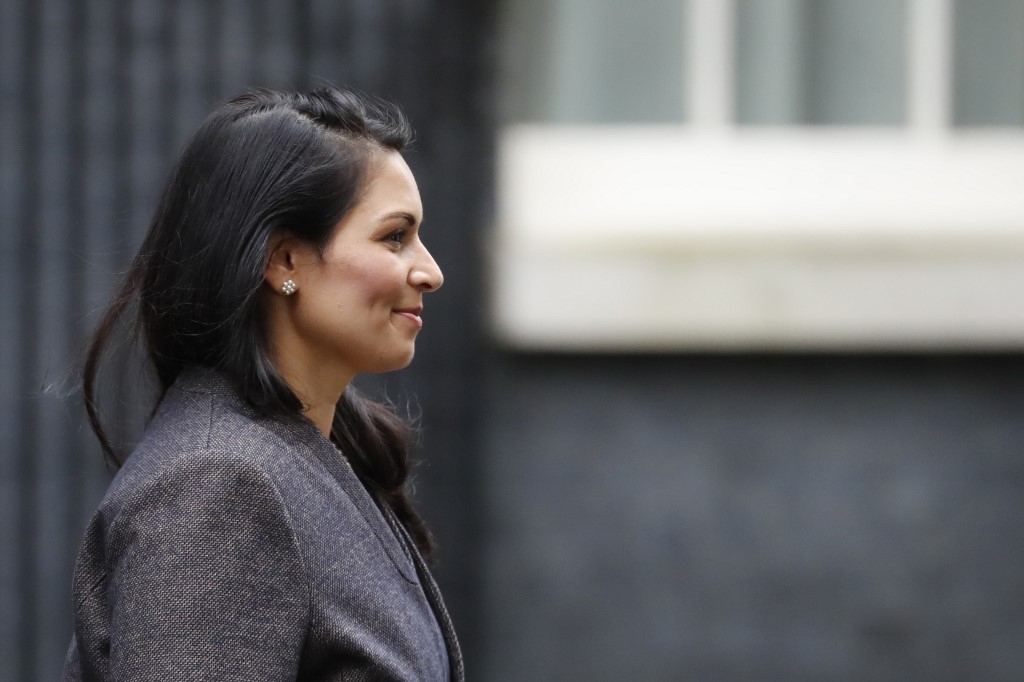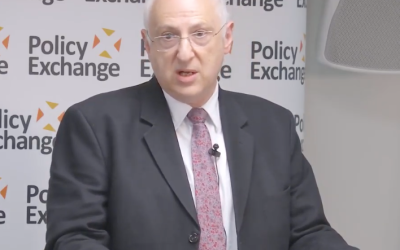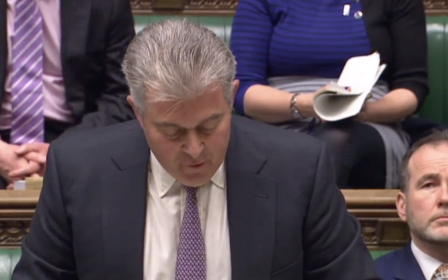EXCLUSIVE: UK government commits to 'full and open' Prevent review appointment

The British government has said it will appoint an independent reviewer of its Prevent strategy through an open and transparent process after human rights campaigners threatened it with further legal action, Middle East Eye can reveal.
In a letter sent this week to lawyers for campaign group Rights Watch (UK), the Government Legal Department said that Priti Patel, the home secretary, had decided that the reviewer would be appointed “through full and open competition”.
“This means that the home secretary will be advised on the appointment by an independent panel, and it will be open to potential candidates to apply for the role,” the letter said.
The government last year committed to commissioning an independent review of Prevent in parliamentary legislation passed in response to widespread criticism of the strategy among rights groups and Muslim advocacy organisations.
What is the Prevent Strategy?
+ Show - HidePrevent is a programme within the British government's counter-terrorism strategy that aims to “safeguard and support those vulnerable to radicalisation, to stop them from becoming terrorists or supporting terrorism”.
It was publicly launched in the aftermath of the 2005 London bombings and was initially targeted squarely at Muslim communities, prompting continuing complaints of discrimination and concerns that the programme was being used to collect intelligence.
In 2011, Prevent's remit was expanded to cover all forms of extremism, defined by the government as “vocal or active opposition to fundamental British values, including democracy, the rule of law, individual liberty and mutual respect and tolerance of different faiths and beliefs.”
In 2015, the government introduced the Prevent Duty which requires public sector workers including doctors, teachers and even nursery staff to have “due regard to the need to prevent people being drawn into terrorism”.
A key element of Prevent is Channel, a programme that offers mentoring and support to people assessed to be at risk of becoming terrorists. Prevent referrals of some young children have proved contentious. 114 children under the age of 15 received Channel support in 2017/18.
Criticism of the Prevent Duty includes that it has had a “chilling effect” on free speech in classrooms and universities, and that it has turned public sector workers into informers who are expected to monitor pupils and patients for “signs of radicalisation”. Some critics have said that it may even be counter-productive.
Advocates argue that it is a form of safeguarding that has been effective in identifying and helping troubled individuals. They point to a growing number of far-right referrals as evidence that it is not discriminatory against Muslims.
In January 2019 the government bowed to pressure and announced that it would commission an independent review of Prevent. This was supposed to be completed by August 2020. After being forced to drop its first appointed reviewer, Lord Carlile, over his past advocacy for Prevent, it conceded that the review would be delayed.
In January 2021 it named William Shawcross as reviewer. Shawcross's appointment was also contentious and prompted many organisations to boycott the review. Further delays followed. Shawcross's review, calling for a renewed focus within Prevent on "the Islamist threat", was finally published in February 2023 - and immediately denounced by critics.
But in December, the Home Office was forced to drop its appointed reviewer, Lord Carlile, following a legal challenge by Rights Watch (UK) over his past advocacy for Prevent.
New MEE newsletter: Jerusalem Dispatch
Sign up to get the latest insights and analysis on Israel-Palestine, alongside Turkey Unpacked and other MEE newsletters
“This is another victory for Rights Watch (UK) and all those advocating for a genuinely independent review of Prevent," said Yasmine Ahmed, executive director of Rights Watch (UK).
"We have always said that the first step to an effective and independent review is a transparent and open appointment process.
“Given that a large part of the reason an independent review is being conducted in the first place is the utter lack of trust in the architecture of Prevent, the government must work to restore trust in a number of impacted communities and stakeholders.
"The only way that this trust can possibly be restored is if the appointment is made in a transparent and fair manner.”
Carolin Ott from law firm Leigh Day, which was representing Rights Watch (UK), said: “Our clients hope that the implications of the decision for the timing of the review will be carefully considered, and that a rigorous and thorough review of the controversial Prevent strategy will commence in due course.”
The delayed appointment has raised concerns about whether the review and the government’s response to it can now be completed before a statutory deadline in August.
According to the letter, the appointment process “will be opened as soon as is reasonably practical”.
“The implications of this decision for the timing of the review will be set out to Parliament in due course,” the Government Legal Department wrote.
A Home Office spokesperson told MEE: “The government is committed to the independent review of Prevent and this important work will go ahead.
“We will be running a full and open recruitment process to appoint the next reviewer. Further details will be announced in due course.”
Middle East Eye delivers independent and unrivalled coverage and analysis of the Middle East, North Africa and beyond. To learn more about republishing this content and the associated fees, please fill out this form. More about MEE can be found here.





